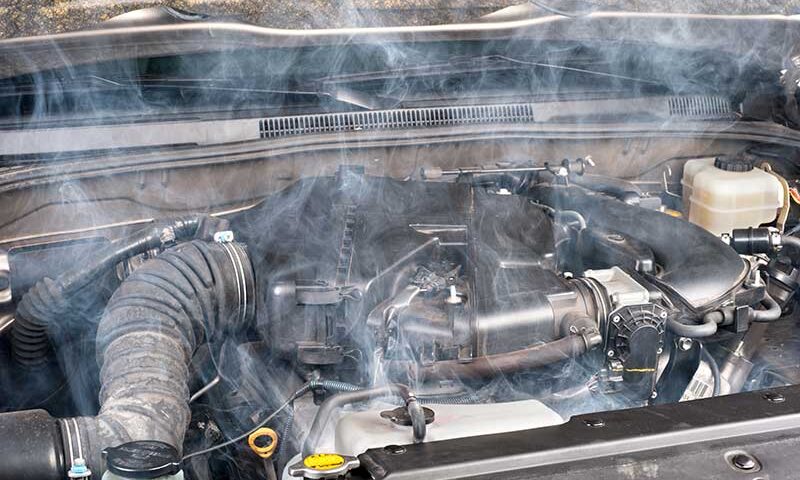Coughing Engines Addressing Black Smoke Issues

When to Change Your Engine Oil A Simple Guide
December 13, 2023
Brake Care Basics Stay Safe on the Road
February 2, 2024Observing a vehicle exude a column of black smoke signifies more than mere aesthetic distress; it serves as an indication of a more profound engine malfunction. This occurrence, commonly known as “coughing engines,” carries significant environmental and vehicle health implications. This blog will investigate the origins of these emissions, the reasons for their concern, and potential solutions.
Comprehending the Cause
The fundamental cause of black smoke emanating from an automobile’s exhaust system is the inadequate combustion of fuel. This may arise due to a multitude of factors:
- Overload Fuel: An excessive amount of fuel enters the combustion chamber of an engine, and since it cannot be completely burned, the surplus is converted to black fumes.
- Fuel injector malfunction can result in an excess of fuel being delivered, which subsequently causes an imbalance in the mixture of oxygen and fuel.
- Air Intake Difficulties: Intake system malfunctions or a clogged air filter can reduce the quantity of air required for correct combustion.
- Engine and Exhaust Difficulties: Black fumes may also be the consequence of problems with the exhaust system or internal components of the engine.
The Reason for Its Concern
Black smoke emanating from wheezing engines serves as an indicator of potential vehicle damage in addition to being an environmental hazard. Car proprietors should be concerned for the following reasons:
- The emission of black smoke particles into the atmosphere results in air pollution, which presents potential health hazards to both human beings and animals.
- Decreased Engine Efficiency: This concern frequently results in increased fuel usage, which subsequently necessitates more frequent and expensive visits to the petrol station.
- Possible Adverse Effects: Persistent engine issues may necessitate more substantial and costly repairs in the future.
Preventive and Remedial Measures
The matter of black smoke necessitates the implementation of both remedial and preventative measures:
- Consistent Maintenance: Preventing the issue can be accomplished through routine inspections and upkeep of the engine, fuel injectors, and air filters.
- Fuel Quality: The probability of black fumes resulting from excessive carbon deposits can be diminished by utilizing fuel of superior quality.
- In the event that black smoke is detected, have a qualified mechanic examine the engine in order to identify and rectify any underlying problems.
- Emission control mechanisms are standard equipment in contemporary automobiles. By ensuring that these are operating properly, black fumes can be reduced.Black smoke and coughing engines are not merely an annoyance; they are signs of underlying problems that require attention. Consistent maintenance and prompt intervention can significantly contribute to the optimal performance and air quality of your vehicle. Remember that a healthy vehicle benefits the environment as well as your wallet.


